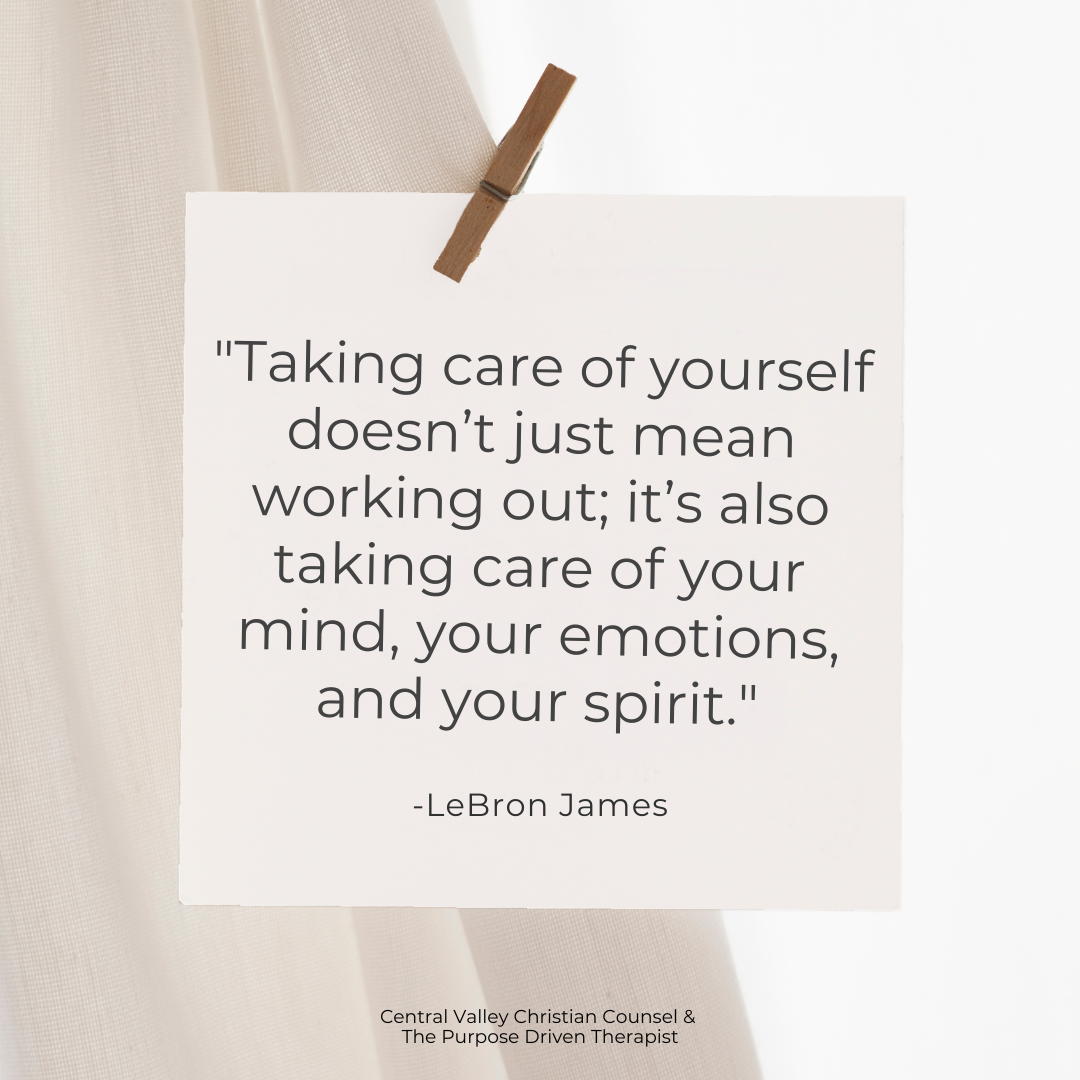Loving Yourself Well: A Guide to Self-Care This Valentine’s Season
It’s that time of year again—store shelves are filled with stuffed animals, cards, and sweets, while jewelry ads flood our screens. Valentine’s Day is here, urging us to show our love through grand romantic gestures for the special people in our lives.
From chocolates and flowers to date nights and extravagant getaways, this season often revolves around outward expressions of love for others. But in the rush to find the perfect gift or plan the perfect moment, we often overlook someone equally deserving of our care: ourselves. This year, let’s shift the focus to the ultimate form of love—self-care.
What Is Self-Care?
Self-care is the practice of intentionally taking steps to nurture your physical, emotional, and mental well-being. It’s about prioritizing your health, setting boundaries, and engaging in activities that recharge and sustain you. However, self-care is often misunderstood, so let’s clarify what it is—and what it isn’t.
What Self-Care Is:
Intentional: Actions taken with the purpose of enhancing well-being, such as exercising, meditating, or spending time with loved ones.
Sustainable: Practices that contribute to long-term health and happiness, like establishing healthy routines or seeking therapy.
Empowering: A means of regaining control over your life, reducing stress, and fostering resilience.
Holistic: Involves nurturing all dimensions of wellness—physical, emotional, mental, social, and spiritual.
What Self-Care Isn’t:
Self-Indulgence: It’s not about excessive pampering or escapism, such as binge-watching TV or overindulging in junk food. While these may provide temporary comfort, they don’t support long-term well-being.
Selfish: Taking care of yourself isn’t neglecting others; it’s ensuring you have the capacity to care for those around you.
One-Size-Fits-All: What works for one person might not work for another. Self-care is highly personal and adaptable.
Occasional: True self-care isn’t a once-in-a-while spa day; it’s an ongoing commitment to your health and happiness.
By reframing self-care as an essential and proactive practice, it becomes clear that taking care of yourself isn’t a luxury—it’s a necessity for thriving in all aspects of life.
Self-Care Statistics
Feeling Stressed: Nearly three in five (59%) people will only practice self-care if they feel stressed. Vagaro
Preventative Interventions: Preventative self-care interventions have been shown to reduce up to 40% of mortality related to unhealthy behaviors and lifestyles. BMJ Global Health
Positive outcomes of self-care: In a national survey, Americans reported the following: enhanced self-confidence (64%), increased productivity (67%), happiness (71%). Mental Health First Aid
Beliefs about self-care: 75% of Americans believe self-care activities can help reduce stress, with at-home spa rituals (40%), getting a manicure/pedicure (30%), exercising outdoors (28%) and working out in a gym (24%) listed as top stress-relieving activities. Vagaro
The Benefits of Self-Care
Self-care offers many benefits that positively affect your well-being. This includes:
1. Improved Physical Health:
Engaging in consistent self-care activities enhances physical health by boosting energy levels, strengthening the immune system, and promoting overall well-being. Prioritizing rest, movement, and proper nutrition ensures your body functions at its best.
2. Enhanced Mental and Emotional Well-Being:
Self-care is a powerful tool for managing stress, reducing anxiety, and alleviating symptoms of depression. Taking time to relax, recharge, and engage in activities that bring joy fosters emotional resilience and contributes to a healthier state of mind.
3. Increased Productivity and Focus:
When you take care of yourself, you recharge your energy reserves, leading to sharper focus, improved concentration, and better problem-solving abilities. By prioritizing your well-being, you set yourself up for greater efficiency in tackling daily tasks.
4. Healthier Relationships:
Prioritizing self-care equips you with the emotional resources to nurture your relationships. When you care for yourself, you prevent burnout and show up as your best self—allowing you to connect more deeply and meaningfully with others.
5. Boosted Self-Esteem and Self-Worth:
Engaging in self-care sends a powerful message to yourself: you are worthy of time and attention. Whether it’s setting boundaries, pursuing hobbies, or engaging in activities that make you feel good, self-care reinforces your sense of self-worth.
6. Burnout Prevention:
Regular self-care helps combat burnout—a state of physical, mental, and emotional exhaustion caused by chronic stress. By proactively addressing your needs, you can maintain balance, replenish your energy, and safeguard your overall well-being. This is especially vital for individuals in caregiving or helping professions.
Challenges and Roadblocks To Self-Care
When it comes to self-care, many individuals encounter various obstacles that hinder their ability to prioritize their well-being. These challenges can stem from both internal and external factors, making it difficult to establish and maintain a consistent self-care routine.
Unworthiness: Many people struggle with the belief that they don't deserve to take time for themselves. They may feel that their needs are secondary to those of others or that they haven't "earned" the right to rest and recharge. This can lead to neglecting self-care and prioritizing the needs of others at the expense of their own well-being.
Guilt: Individuals may feel guilty for taking time away from work or family responsibilities. They may worry that they are being selfish or neglecting their duties by prioritizing their own needs. This guilt can prevent them from engaging in self-care activities and lead to feelings of resentment and burnout.
Lack of Time: Many people lead busy lives with demanding schedules, leaving little room for activities that promote well-being. They may feel that they simply don't have enough time to dedicate to self-care, leading to neglect of their physical and emotional needs.
Mental Health Concerns: Individuals struggling with depression, anxiety, or other mental health conditions may find it difficult to find the motivation or energy to engage in self-care activities. They may feel overwhelmed, hopeless, or simply too exhausted to prioritize their well-being.
Overstimulation: In today's fast-paced and achievement-oriented society, many individuals feel pressured to constantly strive for success and accomplishment. This can lead to overexertion, burnout, and neglect of self-care.
Financial Constraints: Individuals who are underearning may need to work multiple jobs or long hours to make ends meet, leaving little time or energy for self-care. They may also lack the financial resources to engage in activities that promote well-being, such as exercise classes, therapy, or relaxation techniques.
Cognitive Challenges: Individuals with cognitive impairments may have difficulty organizing their daily activities, making informed decisions about their care, or remembering to engage in self-care practices. This can lead to neglect of their physical and emotional needs and a decline in overall well-being.
Unrealistic Goals: Individuals may set overly ambitious goals for themselves, such as exercising for an hour every day or meditating for 30 minutes twice a day. When these goals are not met, it can lead to feelings of discouragement, guilt, and a sense of failure, further hindering self-care efforts.
Cultivating a Self-Care Mindset
For many, the idea of prioritizing self-care can feel selfish or indulgent—but it’s quite the opposite. Self-care is essential for living a balanced, fulfilling, and loving life. It’s about recognizing that when you care for yourself, you show up more fully for the people and responsibilities in your life. Shifting your mindset to view self-care as a necessity, not a luxury, is the first step toward a healthier relationship with yourself.
Tips for Cultivating a Self-Care Mindset This February
Shift the Narrative:
Reframe your thinking: self-care isn’t about putting yourself above others; it’s about ensuring you have the energy and emotional capacity to give. Remind yourself that you are worthy of love and care, just like those you care for.Set Self-Care Intentions:
Use February as an opportunity to be intentional about your self-care. Think of it as setting a resolution for your mental, emotional, and physical well-being. For example, create a self-love mantra such as, “I am worthy of love and care,” or “Taking care of myself allows me to thrive.” Repeat it daily to reinforce your commitment to self-care.Schedule It Like Any Other Priority:
Treat self-care as an essential appointment. Block out time on your calendar for activities like journaling, exercising, meditating, or simply relaxing. Consistency is key to cultivating a self-care mindset.Start Small:
Building a self-care routine doesn’t have to be overwhelming. Begin with one or two small habits, such as drinking more water, taking five deep breaths in moments of stress, or spending 10 minutes each morning stretching or meditating.Celebrate Your Efforts:
Acknowledge and appreciate the steps you take toward self-care, no matter how small. Celebrating progress reinforces your commitment and helps solidify the mindset that self-care is essential.Practice Gratitude and Self-Compassion:
Embrace gratitude as a daily practice—take a moment each day to reflect on what you’re thankful for, including the ways you’ve cared for yourself. Pair this with self-compassion by treating yourself with kindness, especially on challenging days.
Cultivating a self-care mindset takes time, but the results are worth it: better balance, greater fulfillment, and a deeper connection to yourself and others. By embracing self-care this February, you’re not just honoring the season of love—you’re prioritizing a love that lasts a lifetime.
Practical Self-Care Ideas
Valentine’s Day often revolves around showing love to others, but this year, take the opportunity to infuse your self-care practices with the spirit of the season. Here are some Valentine’s-inspired self-care ideas to nurture your mind, body, and soul:
1. Physical Self-Care
Indulge in a Luxurious Bath: Light some candles, sprinkle rose petals in the water, and treat yourself to a calming soak with soothing bath salts or essential oils.
Pamper Yourself: Book a spa day or create a spa-like experience at home with a facial mask, a manicure, or a relaxing massage.
2. Emotional Self-Care
Write a Love Letter to Yourself: Take time to reflect on your strengths, achievements, and the qualities you admire about yourself. Acknowledge your worth and express gratitude for who you are.
Practice Affirmations: Stand in front of a mirror and repeat affirmations like, “I am deserving of love and care,” or, “I choose to show myself kindness every day.”
3. Social Self-Care
Host a “Galentine’s” Gathering: Invite your friends for a casual get-together filled with laughter, connection, and fun. Celebrate friendship by sharing stories, playing games, or enjoying a potluck meal.
Quality Time with Loved Ones: If socializing recharges you, plan a simple outing or dinner with a loved one where you can connect and share meaningful moments.
4. Spiritual Self-Care
Reflect on Gratitude: Spend a few quiet moments thinking about acts of love and kindness you’ve experienced in your life. Write these down in a journal as a reminder of the beauty around you.
Meditate with Intention: Dedicate a meditation session to cultivating self-love and compassion. Visualize yourself surrounded by love and positivity.
5. Creative Self-Care
Bake Heart-Shaped Treats: Whether it’s cookies, brownies, or pancakes, channel your creativity into baking something festive and fun for Valentine’s Day.
Craft with Love: Engage in a creative activity that sparks joy, such as making Valentine’s cards, painting, or creating a vision board filled with your dreams and goals.
This Valentine’s season, let self-care be your ultimate gift to yourself. By embracing these festive ideas, you’ll not only celebrate the season of love but also nurture your own well-being in the process.
Conclusion
Self-care is not a luxury—it’s a vital practice for maintaining your physical, emotional, and mental well-being. By prioritizing yourself, you’re investing in a healthier, happier, and more balanced life.
This month, challenge yourself to embrace the spirit of self-love. Choose one or two self-care practices from this blog to incorporate into your daily routine. Whether it’s taking a luxurious bath, journaling your thoughts, or connecting with loved ones, small steps can lead to meaningful change.
For deeper insights, explore our other blogs on topics like building resilience, self-care, practicing forgiveness, and mental health in the workplace.
And if you’re ready to take your self-care journey to the next level, consider therapy as a powerful tool for growth and healing. We invite you to schedule a complimentary consultation with us to see how we can support you.
Self-care is the ultimate expression of love—for yourself and the life you’re building. Start today, and let this February be a celebration of you.








